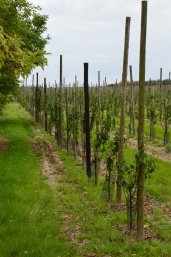New Horizon2020 project ReROOT explores migrants’ arrival infrastructures in Europe
In 2015, over a million migrants and refugees crossed into Europe. This has led to profound political and societal debate about how to deal with the influx of such great numbers of migrants and how to make sure they are resettled properly and humanely. ReROOT, a new Horizon2020 project in which Utrecht University is partner, will explore historical and more recent infrastructures of arrival for migrants in Europe. The project should lead to concrete tools and recommendations on how to plan and implement effective integration policies and practices. ReROOT will officially launch on 9 April 2021 and will run for approximately 4.5 years.

ReROOT is led by KU Leuven and involves partners from nine different European countries, including the Netherlands (Utrecht University), Turkey, Greece, Hungary, France, Germany, Belgium and the United Kingdom. In each country specific pilot sites will be studied. This should render an overview of the complex arrival trajectories and processes of various types of migrants, including for example refugees, seasonal workers and undocumented migrants. Most of these migrants are young and some have families who do not always arrive at the same time and in the same speed, making these arrival processes even more layered.
The arrival infrastructures that are relevant for these different types of migrants are set up by all kinds of formal agencies and programmes, but a wide range of informal actors are involved in channelling newcomers as well: previous generations of migrants, shops, religious sites, local labour offices, language classes, hairdressers and leisure club. By gaining insight into the wide range of stakeholders involved in migrants’ arrivals, ReROOT aims to contribute to the development of sustainable, evidence-based integration practices, policies and public imaginaries.
Case studies in the Netherlands
Utrecht University’s contribution to ReROOT will focus on two different case studies: one PhD student will conduct research with labour and seasonal migrants in Westland (NL) and Sint-Truiden (BE) and another PhD student will focus on the arrival infrastructures for transit migrants in Brussels and Amsterdam. Both PhD projects will be co-supervised by researchers from Utrecht University and KU Leuven.

